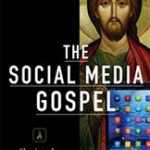Rachel Held Evans has written a wonderful piece for the CNN Belief blog on why Millennials are leaving our churches.
It has been in heavy rotation on the social media circuits the last couple of days, but in case you haven’t seen it yet, do stop and read it now.

From my experience talking to millennials in churches and colleges, I think Rachel has hit the nail on the head. However, I am a few years older than Rachel (squarely in the middle of Generation X), and I remember very similar pieces being written about why Gen-Xers were leaving churches in the early to mid-1990s. So, maybe there’s a bit of “nothing new under the sun” here, but I think the challenges that she has named are real and crucial for churches to address.
For the last few years, John Pattison and I (along with a diverse assortment of friends), have been exploring this very question, of how our churches move forward into deeper Christian faithfulness, in a time when — as Rachel emphasized — people of many ages are longing for substance, to belong to a community that is being transformed and is bearing witness of Christ’s peace to our neighbors. Along the way, we stumbled into the language and philosophy of the Slow Food movement, and it utterly captivated our imaginations: what might it look like to envision Slow Church? Just as the Slow Food movement names and offers an alternative to the shortcuts of the industrial food system, we wanted to do more than simply critique the carnage of mainstream church culture, and all the shortcuts that define it, we wanted to offer a different way. Just as the local community is the primary context for Slow Food, we too wanted to plead for the recovery of local churches as vital to the resurrection of a gospel that was vibrant and meaningful. Just as the Slow Food movement is centrally concerned not only with what we eat, but the means by which that food was grown and prepared, we wanted a Christianity was not only concerned with ends (say the peace of heaven when we die), but one in the means by which we pursue these ends are not at cross-purposes, but fit well with them (We learned a lot here from Eugene Peterson’s wonderful book The Jesus Way, which reminds us that Jesus, as the Way, was deeply concerned that our lives fit the ends we desire).
So what does a Slow Church look like? There are of course, at least as many answers to this question, as there are local churches. But following the three cardinal virtues of the Slow Food movement (desiring food that is good, clean and fair), we have named three similar virtues that define a Slow Church: Ethics, Ecology and Economy. Of course, these three virtues mean vastly different things to different people, so let me offer a brief depiction of what we mean when we use them in relation to Slow Church. When we speak of ethics, we mean being church well, or of preferring to define the health of our life together in qualitative terms instead of quantitative ones. When we speak of ethics, we also must speak of the practices that are essential to sustaining healthy church communities, including stability and work. When we speak of ecology, we mean that we locate our life together in the context of God’s mission of reconciling all creation. If God is reconciling all creation, there is no part or no people group (race, ethnicity, sexual orientation) that can be cast off; we must always be attentive and discerning together, as we seek not only to proclaim the peace of Christ, but to embody it in our neighborhoods. Finally, when we speak of economy, we must recognize and proclaim the wondrous economy of care that is God’s creation, in which God loves and abundantly provides for the flourishing of all creation. We move within this economy of care as we live lives oriented toward first gratitude and then generosity, lamenting our complicity in the situations of those who do not know God’s abundant provision.
As I have had the opportunity to talk about Slow Church over the last few years in churches and a variety of other Christian settings, I have been struck by how this vision resonates with Millennials, Gen-Xers and others who are deeply frustrated with the status quo of evangelicalism. As I read Rachel’s article, I realized that what we are calling Slow Church, addresses most, if not all the concerns that she raised as crucial among Millennnials.
I have noted above that Slow Church is deeply concerned with means, so how do we move forward out of the mess that Rachel has described? Let me offer a few suggestions that, if taken seriously, will get us rolling on this long, slow journey toward a deeper and more faithful Christian witness in our local churches.
First, to pastors and other established leaders in congregations and denominations…
Rachel’s advice to “sit down and really talk with [millennials and other dissenters], is a good start. It is much more important that we are growing in understanding and love for others in our congregations than that we be right about particular doctrines or social policies. God’s work is one of transformation; we all need to be open to change. The way in which Jesus led his disciples was marked by its vulnerability. Similarly, as we lead congregations, to what extent are we vulnerable, not trying to be supreme authorities or to shelter our brothers and sisters from all possible contingencies of life.
To Millennials, or others who are exasperated with what you find in churches…
Don’t give up hope. We need you to bear witness to a different way WITHIN our churches. Talk with the leaders of your churches, challenge them to read books with you and discuss them. Dare to imagine and seek a meaningful life that is centered in your church community. Find a congregation that you have some connection to and can at least tolerate, and stay put; be patient, and always keep asking and seeking, even when doing so isn’t always appreciated. Find friends in your congregation that will commit to staying put and asking and seeking together with you.
And finally, to everyone…
Create, nurture and defend spaces in your congregational life for open conversation — in which people can raise critiques of the church and ask difficult questions, and in which these questions and critiques can be used constructively by the congregation to imagine new ways forward. Here at Englewood Christian Church on the Near Eastside of Indianapolis, we have created a space for open conversation on Sunday nights, and it has radically transformed us over the last 15 years (I have told our story in detail in my recent book The Virtue of Dialogue: Conversation as a Hopeful Practice of Church Communities). We were (and still mostly are) a congregation of diverse generations, theological convictions and political opinions, and the practice of conversation may have drawn us a little closer, but it did not magically make us one-minded on all things, but rather what it has done is to nurture in our midst a deep love for and trust of one another, so that we can work and seek the peace of Christ together, even when we don’t always agree with one another about what we should do or why we should do it.
As Rachel has indicated, there is a deep hunger today for church communities that can sustain these substantial sorts of conversation, and conversation is the way that we move forward in the direction we are calling Slow Church. It is in conversation that begin to be the church well, learning as we continue to do here at Englewood to love and trust each other in deeper and more meaningful ways. It is in conversation that we navigate the many complexities and tensions of following God’s mission of reconciling all things, being ever attentive to the particularities of our histories and places. It is in conversation that we embody our love for each other in an economy of care, gratefully receiving God’s abundant provision and generously sharing with our sisters, brothers and neighbors.
This is the journey to which we are called, a way of cultivating community in the patient way of Jesus.
[Watch for the SLOW CHURCH book, coming next spring from IVP / Praxis ]
















